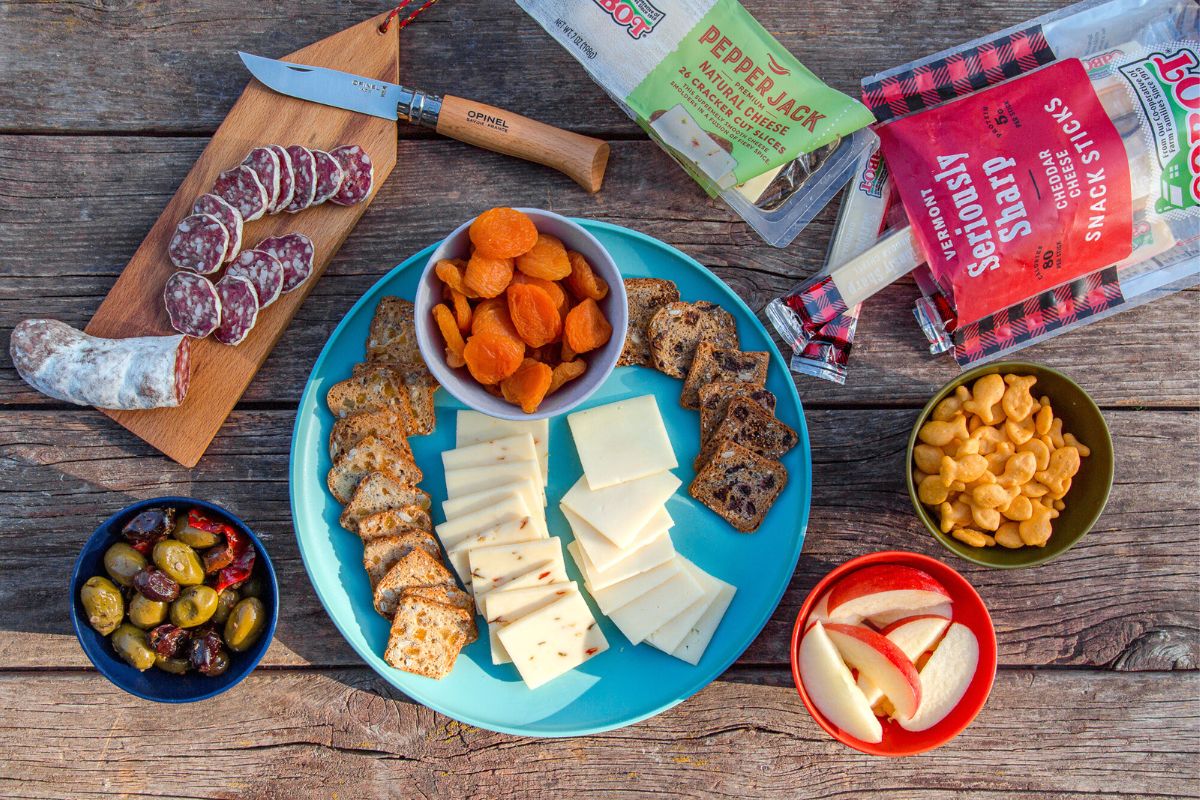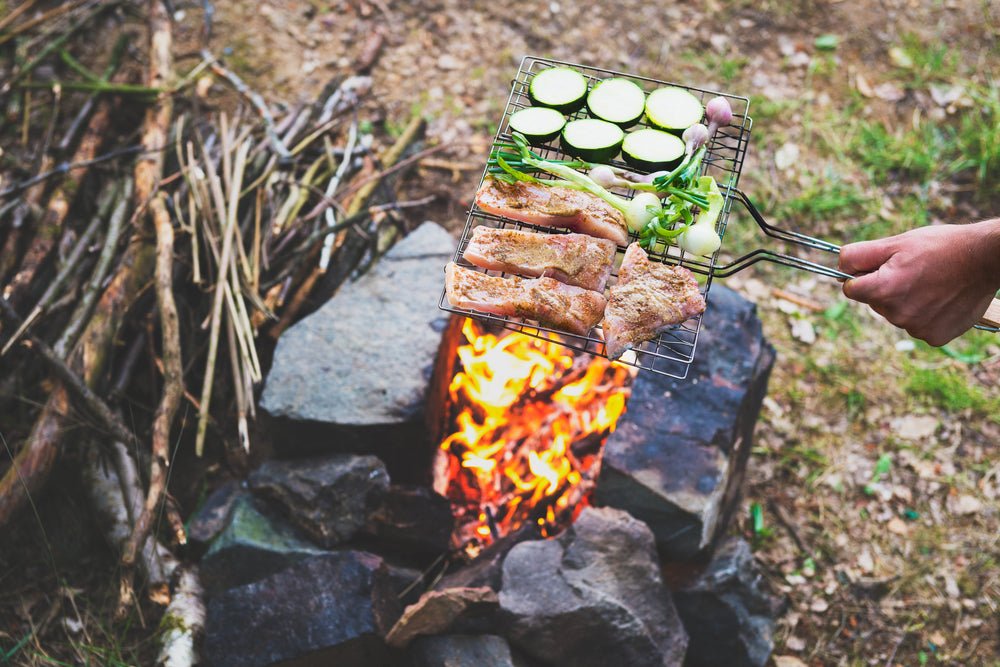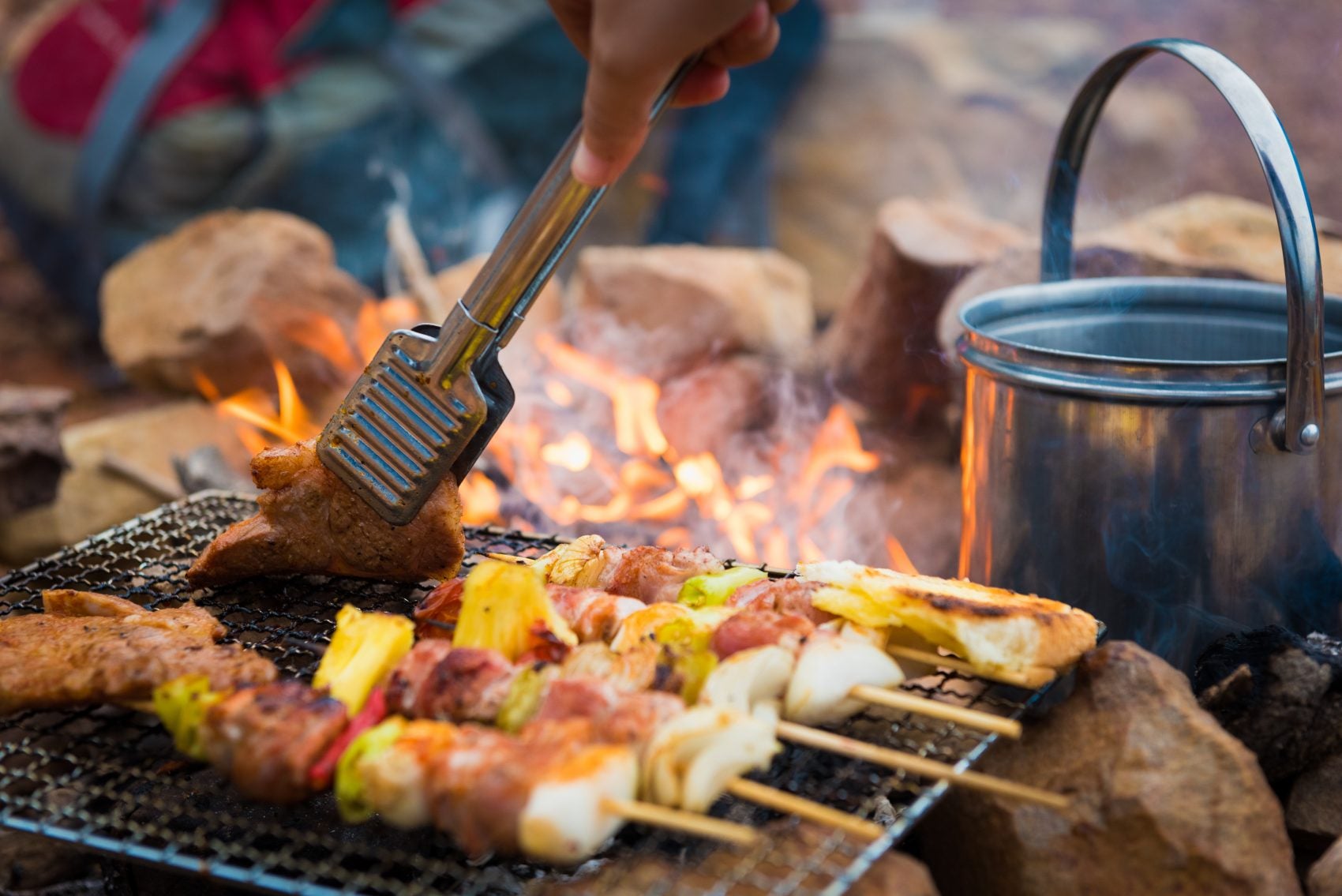
Healthy Camping Food
Fuel Your Adventure: A Comprehensive Guide to Healthy Camping Food
Embarking on a camping adventure not only calls for rugged gear and an adventurous spirit but also demands sustenance that energizes, nourishes, and enhances the outdoor experience. When planning your meals under the stars, remember that healthy camping food serves a dual purpose – it keeps you fueled and ready for action while adding to the overall enjoyment of your wilderness escapade. This comprehensive guide is your roadmap to crafting balanced, nutritious meals from planning to plate, ensuring that every bite tastes like a celebration of the great outdoors.
Planning Your Camping Menu
To ensure your body has the fuel it needs for hiking trails, setting up camp, and exploring nature’s wonders, start by assessing your nutritional requirements based on your activity level. Calories are the currency of energy, so factor in how much you’ll exert during your trip. Aim for a diverse menu packed with protein for muscle repair, complex carbohydrates for sustained energy, healthy fats for insulation and absorption of fat-soluble vitamins, plus a variety of fruits and vegetables to provide essential vitamins, minerals, and fiber.
As you compile your meal ideas, consider incorporating seasonal and local produce if possible. Not only does this support sustainable practices, but it can also introduce new flavors and textures to your camping cuisine. Create a checklist that includes all three main meals as well as snacks, ensuring each one delivers a balanced blend of nutrients. For instance, kick off your day with a hearty oatmeal breakfast bowl topped with fresh fruit and nuts, followed by a lunch of whole grain wraps filled with grilled chicken, veggies, and hummus, then finish with a satisfying dinner of foil-packed salmon and roasted veggies.
Packing Smart for Optimal Nutrition
When packing your provisions, think lightweight, non-perishable staples that pack a nutritional punch. Whole-grain crackers, raw or roasted nuts, and dried fruits make excellent snacks and can be incorporated into meals too. Don’t forget about canned goods with low sodium content, such as beans, tuna, or even soups, which can serve as a base for quick and easy dinners.
Fresh foods should be carefully chosen for their durability and storage needs. Portable coolers can keep items like eggs, cheese, and meats fresh for days, while certain fruits and vegetables (like carrots, apples, and citrus) hold up well without refrigeration. Nutritious convenience items like freeze-dried fruits and vegetables, powdered milk, and instant oatmeal with added nuts and seeds streamline meal prep without sacrificing nutrition.
Hydration is key, so bring plenty of water along with electrolyte drinks and herbal tea packets to replenish what you lose through sweat and daily activities.
Healthy Meal Preparation Techniques
Outfit your cooking arsenal with minimalist tools suitable for campfire or portable stove use. Invest in lightweight pots, pans, and utensils, and master quick and easy meal prep techniques like foil packet meals, where ingredients are wrapped together and cooked directly over the fire. These ‘foil-pack feasts’ can range from veggie-stuffed potatoes to fish and vegetable combos.
To reduce oil usage and sodium intake, experiment with grilling, steaming, or using marinades for flavor. Prepare recipes ahead of time that call for simple assembly at camp, like quinoa salad bowls layered with pre-cut veggies and protein, or lean meat skewers marinated overnight and ready to sizzle over the flames.
Snacks and Energy Boosters
Sustaining energy throughout the day requires strategic snacking between meals. Stock up on high-energy, nutrient-dense munchies like homemade trail mix with seeds, nuts, and dried berries, or gluten-free crackers paired with almond butter packets. Hummus and sliced veggies offer a refreshing crunch, while dehydrated fruits can satisfy a sweet tooth without added sugars.
For dessert, get creative with natural sweeteners like honey or maple syrup in dishes like banana boats stuffed with nuts and chocolate, or baked apples spiced with cinnamon.
Special Dietary Considerations
Catering to dietary restrictions doesn’t mean compromising on taste or nutrition when camping. Vegetarians can enjoy bean-based chili, lentil salads, or veggie burgers, while vegans might opt for tofu stir-fries or chickpea curry. Gluten-free campers can swap out regular pasta for rice noodles or zucchini noodles, and those avoiding dairy can use plant-based milks in coffee or oatmeal.
Food Safety in the Wild
Protect yourself against foodborne illness by practicing proper food storage. Use bear-resistant containers or hoist food supplies out of reach of critters, especially in areas where bears are common. Maintain separation between raw and cooked foods, always wash hands before handling food, and follow guidelines for keeping perishables at safe temperatures.
Fuel Your Adventures: Top Picks for Healthy and Delicious Camping Food
Camping is an invigorating experience that brings us closer to nature, and it’s essential to fuel your adventures with nutritious and energizing meals. Here’s a list of some healthy camping food options that are both easy to prepare and delicious:
- Oatmeal Breakfast: Start the day right with a hearty serving of steel-cut oats. Packed with fiber, protein, and complex carbohydrates, they’ll provide sustained energy for your morning hikes. Enhance it with fresh fruits like berries or chopped apples, nuts, and a drizzle of honey for natural sweetness.
- Trail Mix: Prepare a custom blend of nuts (such as almonds, walnuts), seeds (sunflower, pumpkin), dried fruits (raisins, cranberries), and a few dark chocolate chips for a perfect on-the-go snack. It’s rich in protein, healthy fats, and antioxidants, keeping you satiated between meals.
- Grilled Veggie Wraps: Fill whole-grain tortillas with grilled veggies such as zucchini, bell peppers, onions, and mushrooms. Add hummus or avocado for a creamy texture and a dose of healthy fats. This meal is loaded with vitamins, minerals, and fiber to keep you full and fueled.
- Campfire Grilled Chicken or Tofu Skewers: Marinate lean chicken breasts or tofu cubes in herbs and spices before skewering them. Grill over campfire coals for a high-protein, low-fat dinner. Pair with a side of quinoa or brown rice for a balanced meal.
Conclusion
By prioritizing healthful eating habits on your camping trips, you’re not just feeding your body; you’re nurturing a deeper connection with nature and enhancing the overall quality of your adventure. The journey of preparing wholesome meals becomes an integral part of the outdoor experience, making every bite a testament to your resilience and appreciation for life’s simplest pleasures.
Bonus Section: Healthy Eating While Backpacking
The challenges of backpacking demand an extra layer of strategy when it comes to food. Look for lightweight, dehydrated meals that are rich in calories and nutrients. Examples include instant rice mixed with dehydrated veggies and protein powder, or instant refried beans served with tortilla chips and avocado. Ultralight options like single-serving nut butter packs, vacuum-sealed pouches of tuna, and shelf-stable hummus cups can add valuable protein to your diet without weighing you down.



:max_bytes(150000):strip_icc()/shrimp-boil-foil-packs-4164608-hero-01-bc17d5962dbf4d5d9b21561deb13b985.jpg)

